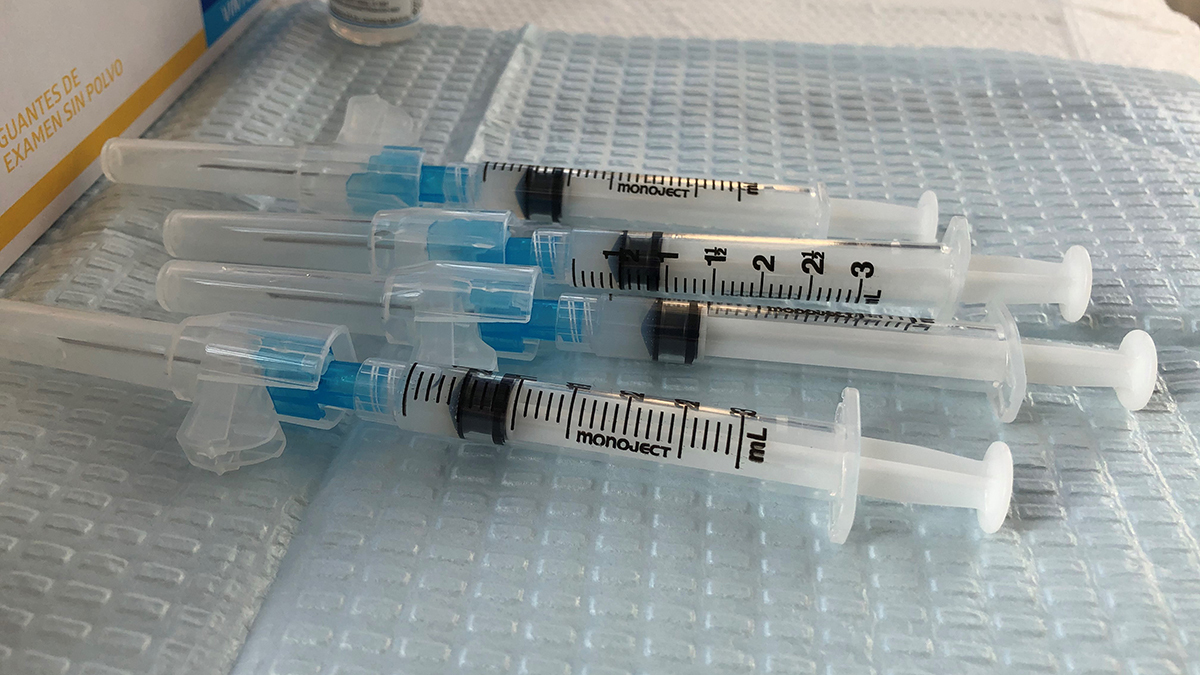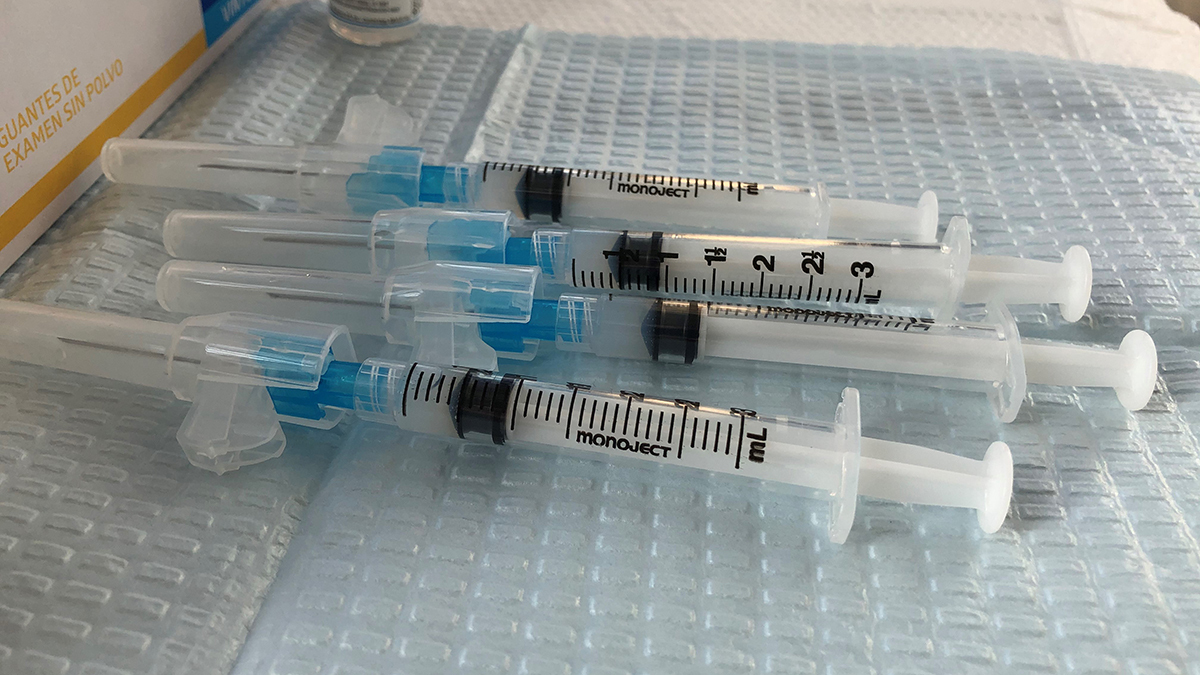
As the country races to vaccinate as many people as possible before other potentially more dangerous variants of the coronavirus emerge, one constant hurdle remains; vaccine hesitancy.
Scripps Immunologist Dr. Ron Simon says it is essential for as many people as possible to get the vaccine, even those who suffer from allergies.
“There is really no correlation to being allergic to anything else, being it food or drug, whatever, and having an allergic reaction to this,” said Dr. Simon.
And especially those who have a weakened immune system.
“The problem with immunocompromised [individuals] is that they may not get that good of a response, but whatever response they get is better than not being protected at all because they are at particular risk for having a bad outcome from COVID,” said Dr. Simon.
Recent cases of possible allergic reactions to the vaccine have increased fears.
“The allergic reactions are very rare, the side effects are fairly common, but that’s no different than what we get with other vaccines as well,” said Dr. Simon.
He adds that the urgency to vaccinate applies to everyone. A larger unvaccinated pool gives the virus greater chances to mutate.
“It’s very important,” said Leoner Garrison, a San Diego Health Worker. “I have a family, I’m a mother, grandmother, and wife and I want my family to be safe when I go home.”
Garrison, didn’t think twice about taking the vaccine.
“I want to encourage the community to take the vaccine and not to listen to the bad experience of other people,” said Garrison. “Do what is right for your health and your loved ones.”
Dr. Simon says the Pfizer and Moderna vaccines seem to be effective against the UK variant. But says studies have shown protections drop against the South Africa variant in the Moderna vaccine. Currently, the company is working on a booster.
In the meantime, vaccinating as many people as possible remains our main weapon in the race against the new variants.

